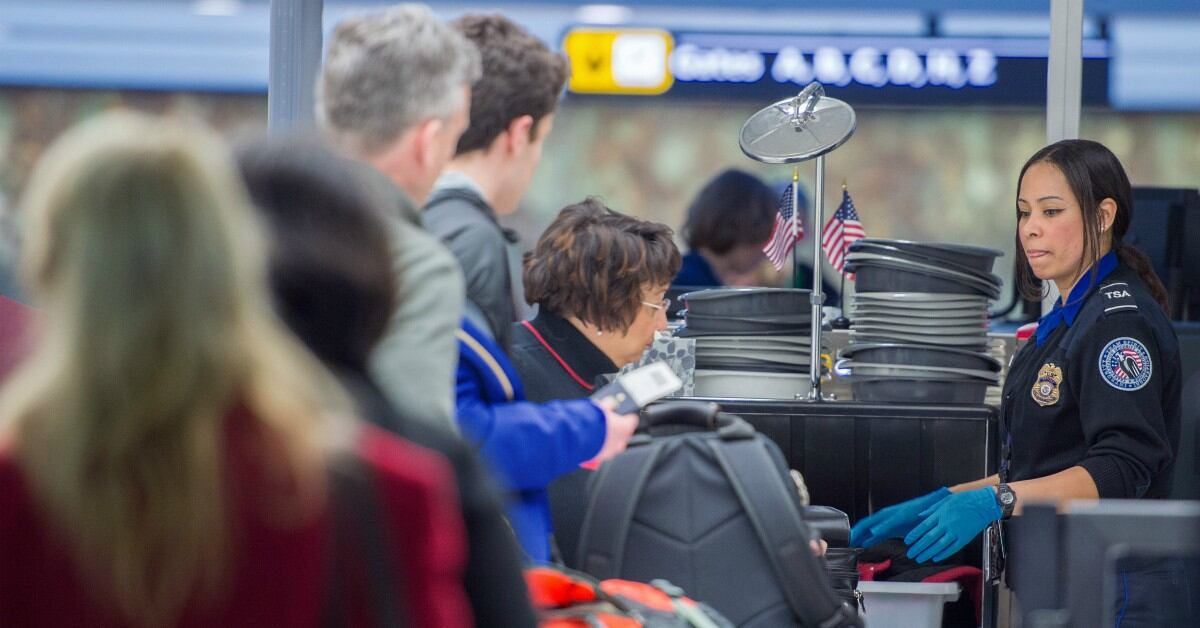Agencies like the Transportation Security Agency and the Federal Air Marshal Service face looming staff shortages in the coming years due to high turnover, heavy workloads and upcoming mass retirements, according to employee representatives who testified at a Nov. 16 House Homeland Security Committee hearing.
“I am concerned that TSA is not adequately staffed to handle the rise in travelers that we will see in airports across the country over the next few weeks,” said Rep. Carlos Gimenez, R-Fla.
Transportation security officers have not only faced the challenges associated with performing their jobs during a global pandemic, but they also normally encounter financial difficulties as well, according to American Federation of Government Employees National President Everett Kelley.
“Though TSOs are among the lowest-paid federal employees, they worked without pay over a span of three pay periods [during the 2019 shutdown] and some are still digging out from the financial consequences of having to go without paychecks for over a month,” said Kelley.
“For someone working with low pay and few rights at work, having to borrow money or work temporary second and third jobs, and deal with not being able to pay rent, car payments, child support or even groceries — that is the real definition of turbulent times.”
A bill currently under consideration in the House would transition TSA workers to the General Schedule pay system, where proponents believe they will get better pay and benefits.
The money to fund that transition could come from stepping up enforcement efforts for passengers that violate rules and assault transportation employees, according to John Casaretti, president of the Air Marshal Association.
“Recovering the $3 billion in projected fees for 2022 and 2023 would easily cover the hiring of [federal air marshals] to cover the current and projected losses and would fund the buildout of new law enforcement sections to support expanding FAM roles,” he said. “The fees could also allow for the TSA to hire more TSOs and would go a long way to covering the proposed TSA workforce into the General Schedule pay system.”
As of September, TSA had only issued fines to 10 passengers, according to Rep. Bonnie Watson Coleman, D-N.J., despite thousands of reported incidents.
TSA has now increased that enforcement to $85,990 in fines against 190 individuals, but witnesses said that this level of enforcement was not enough to protect workers from rowdy and noncompliant passengers.
“People need to understand consequences are severe and real,” said Sara Nelson, international president of the Association of Flight Attendants-CWA.
According to Casaretti, investigations into passenger misconduct may get more traction if the investigating authority for some cases is taken away from the FBI, which has significant other priorities, and placed with the air marshals.
“I submit that air marshals could actually do this and be liaising with the airlines and anybody that is assaulted, doing the investigation and putting these individuals on a list itself,” he said. “That would take a lot of the burden off of the existing investigative agencies that, quite honestly, may not respond to the checkpoints or these type of low-level incidents, or to the gate agents.”
According to John Samuelsen, international president of the Transport Workers Union of America, passengers that are prosecuted or fined under a due process system should also then be put on no-fly lists so they cannot continue to harass workers.
Jessie Bur covers federal IT and management.





